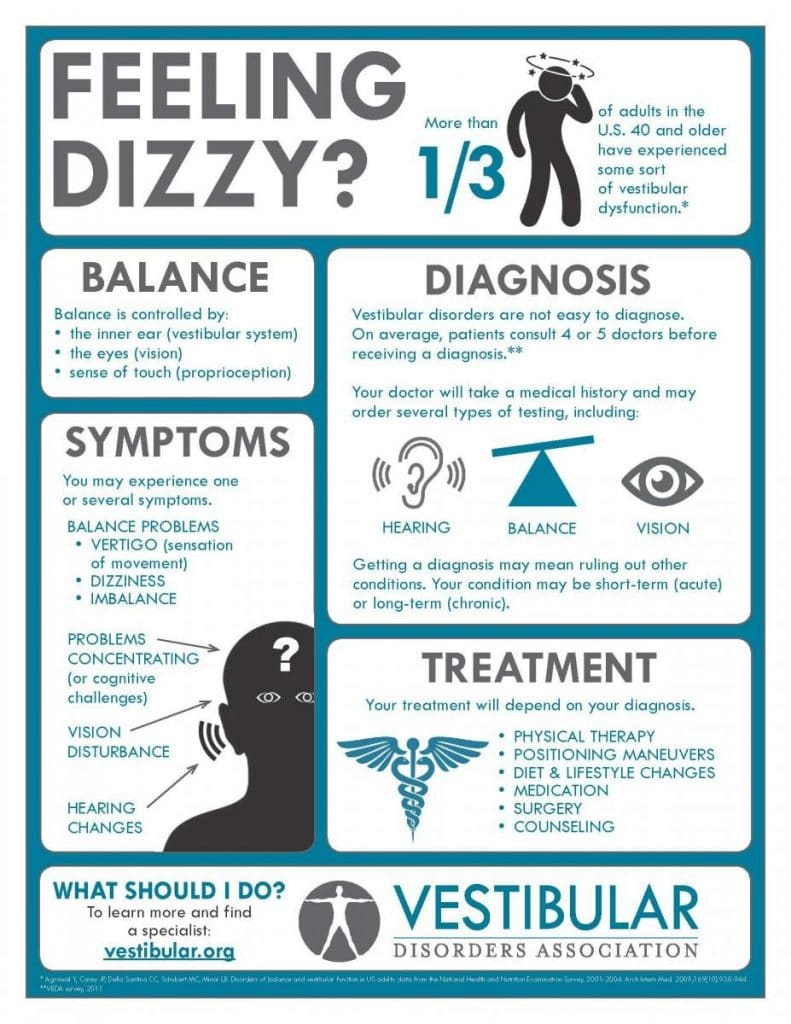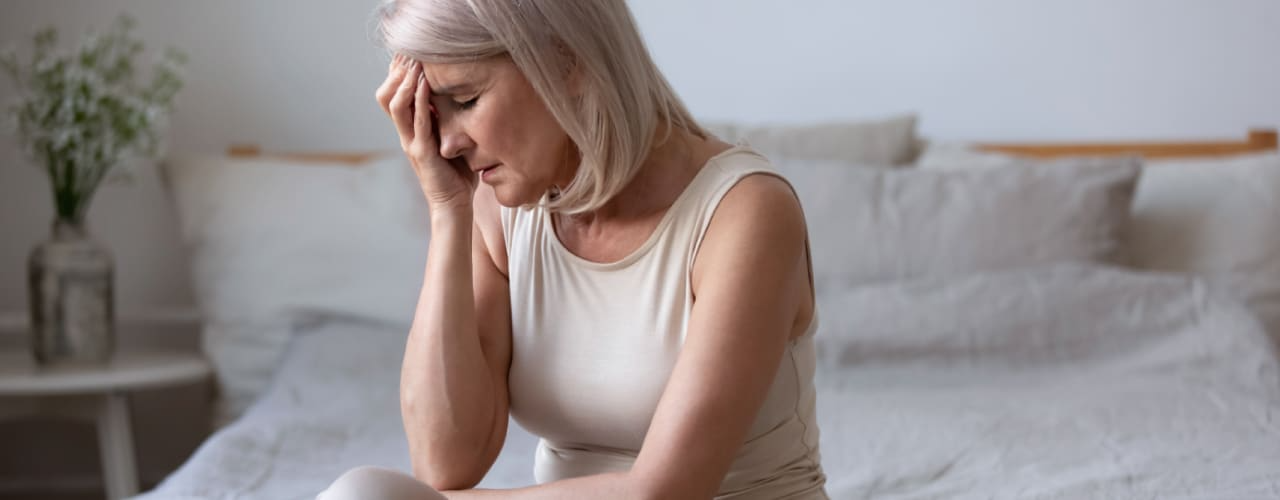
Carlson ProCare is pleased to have four physical therapists on staff skilled in Vestibular Therapy. Andrea Myers, PT, DPT, OCS in our Bethel office (Andrea Myers, PT, DPT, completed the vestibular therapy certification at Emory University in 2009); Andrea Csizmadia, MSPT, CLT-LANA in our New Milford Office, and Ashley Watts, PT, DPT and Kyle Sirois, PT, DPT in our Meriden and Wallingford offices. We understand how scary dizziness and imbalance can be for patients. Fortunately, many causes of dizziness and imbalance can be successfully treated with physical therapy.
What is Vestibular Therapy?
The most common type of vestibular disorder is Benign Paroxysmal Positional Vertigo (BPPV). It causes a sense of spinning when a person’s head changes position in relation to gravity. Often, people experience episodes of spinning when rolling over in bed, washing their hair, looking up, or turning their head quickly to look at something. BPPV is triggered by displacement of the crystals in the inner ear. BPPV often occurs without an apparent cause, or it can occur after a head trauma (including concussion). Read more about BPPV here. BPPV is diagnosed and treated with simple positioning maneuvers done in the clinic.
Here is a video of Andrea performing the Dix-Hallpike maneuver:
https://www.facebook.com/CTN.bethel/videos/440792050013764/
Here is a video of Andrea C. performing an Epley’s Maneuver:
[Insert link to Facebook video]
Other Causes of Dizziness
Vestibular disorders can be caused peripherally, by something affecting your inner ear, or centrally, by something affecting your brain or brain stem. Other possible causes of dizziness and vertigo include:
- Migraines or Vestibular Migraines
- Cervicogenic dizziness
- Concussion or head injury
- Inner ear infection: labyrinthitis, vestibular neuritis
- Inflammation or impingement of the vestibulocochlear nerve
- Medications
- Postural hypotension
- Meniere’s Disease
- Stroke
- Secondary endolymphatic hydrops
- Perilymph fistula
- Tumors, acoustic neuroma
- Superior canal dehiscence
- Ototoxicity
- Demyelinating disease, like Multiple Sclerosis
- Grinding your teeth
- Stress, anxiety, or trauma
Labyrinthitis and vestibular neuritis are other common causes of dizziness and imbalance. They occur when an infection causes inflammation of the inner ear or the nerve that connects the inner ear to the brain. Viruses are more likely to cause this condition than bacteria. When infection occurs, it causes an imbalance in the information the brain receives from the inner ears. The inner ears give the brain information about the position and movement of the head in space. If the brain receives different information from the right and left ears, it results in dizziness and imbalance. The first 48–72 hours of symptoms are the most severe. A person may experience sudden onset of constant vertigo (spinning) and have severe imbalance. Some people are so dizzy that they are unable to get out of bed or walk. People often go to the emergency room due to the severity of their symptoms. After this initial 2–3 day period of severe symptoms, the dizziness changes from constant to only occurring with movement. Some people gradually recover without treatment over the course of 4–6 weeks. Others have symptoms of dizziness, imbalance, headache, fatigue, and difficulty concentrating. Vestibular rehabilitation helps people recover by teaching them specific exercises to stimulate the brain’s recovery. The exercises work by stimulating the brain to adapt to the imbalance between the inner ears. People can have a complete recovery from Labyrinthitis and vestibular neuritis.
For more information on vestibular and balance disorders, check out the Vestibular Disorders Association website.
Address your dizziness and imbalance today! Contact Carlson ProCare to make an appointment with one of our four highly skilled vestibular therapists.


